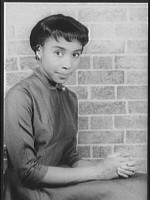Over the River...Life of Lydia Maria Child, Abolitionist for Freedom est un film américain de genre Documentaire avec Diahann Carroll
Over the River...Life of Lydia Maria Child, Abolitionist for Freedom (2007)

Si vous aimez ce film, faites-le savoir !
Over the River…Life of Lydia Maria Child, Abolitionist for Freedom is a 2007 documentary film and book about the life of Lydia Maria Child. The film was produced by Permanent Productions, Inc., written and directed by Constance L. Jackson, narrated by Diahann Carroll and features James Moses Black, Michele S. Patterson, Greta Muxworthy, Beth Lockhart and Jacob Conrad.
Acteurs
Bande annonce de Over the River...Life of Lydia Maria Child, Abolitionist for Freedom
Bluray, DVD
Streaming / VOD
Commentaires
Postez un commentaire :
Suggestions de films similaires à Over the River...Life of Lydia Maria Child, Abolitionist for Freedom
Il y a 13 films ayant les mêmes acteurs, 8969 ayant les mêmes genres cinématographiques, 4998 films qui ont les mêmes thèmes (dont 0 films qui ont les mêmes 7 thèmes que Over the River...Life of Lydia Maria Child, Abolitionist for Freedom), pour avoir au final 70 suggestions de films similaires.Si vous avez aimé Over the River...Life of Lydia Maria Child, Abolitionist for Freedom, vous aimerez sûrement les films similaires suivants :
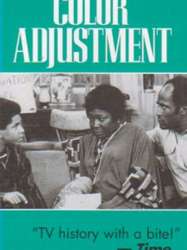
Color Adjustment (1992)
, 1h26Réalisé par Marlon Riggs
Origine Etats-Unis
Genres Documentaire
Thèmes Le racisme, La télévision, Documentaire sur la discrimination, Documentaire sur le droit, Documentaire sur une personnalité
Acteurs Norman Lear, Tim Reid, Steven Bochco, Diahann Carroll, Ruby Dee, Hal Kanter
Note73%






Loyalties (1999)
Genres Documentaire
Thèmes Esclavagisme, Le racisme, Documentaire sur la discrimination, Documentaire sur le droit, Documentaire historique, Documentaire sur une personnalité

Les Négriers (1971)
, 2h20Réalisé par Francesco Prosperi, Gualtiero Jacopetti, Franco E. Prosperi
Origine Italie
Genres Drame, Documentaire, Horreur, Historique, Policier
Thèmes Esclavagisme, Le racisme, Documentaire sur la discrimination, Documentaire sur le droit, Documentaire historique, Documentaire sur une personnalité
Acteurs Gualtiero Jacopetti, Susan Hampshire, Franco E. Prosperi, Geoffrey Copleston
Note65%





Le film a été tourné quelques années après Africa addio, à l'origine de polémiques idéologiques, dues à la description des difficultés en tous genres du continent africain après la fin du colonialisme européen.
 , 52minutes
, 52minutesGenres Documentaire
Thèmes Esclavagisme, Le racisme, Documentaire sur la discrimination, Documentaire sur le droit, Documentaire sur la guerre, Documentaire historique, Documentaire sur une personnalité, Politique, Film catastrophe
Frederick Douglass and the White Negro is a documentary telling the story of ex-slave, abolitionist, writer and politician Frederick Douglass and his escape to Ireland from America in the 1840s. The film follows Douglass' life from slavery as a young man through to his time in Ireland where he befriended Daniel O'Connell, toured the country spreading the message of abolition and was treated as a human being for the first time by white people. His arrival in Ireland coincided with the Great Famine and he witnessed white people in what he considered to be a worse state than his fellow African Americans back in the US. The film follows Douglass back to America where he buys his freedom with funds raised in Ireland and Britain. Fellow passengers on his return journey include the Irish escaping the famine who arrive in their millions and would go on to play a major role in the New York Draft Riot of 1863 which Douglass could only despair over. The film examines (with contributions from the author of How The Irish Became White Noel Ignatiev amongst others) the turbulent relationship between African Americans and Irish Americans during the American Civil War, what drew them together and what drove them apart and how this would shape the America of the twentieth century and beyond.
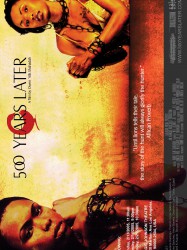
500 Years Later (2005)
, 1h48Réalisé par Owen 'Alik Shahadah
Genres Documentaire
Thèmes Afrique post-coloniale, Esclavagisme, Le racisme, Documentaire sur la discrimination, Documentaire sur le droit, Documentaire historique, Documentaire sur une personnalité, Documentaire sur la politique, Politique
Acteurs Bill Cosby, M. K. Asante, Nelson George
Note68%





The film visits five continents, and over twenty countries while charting the legacy of slavery and identifies a direct, or indirect link to crime, drugs, HIV/AIDS, poor education, inferiority complex, low expectations, poverty, corruption, poor health, and underdevelopment to African people globally.

Rwanda pour mémoire (2003)
, 1h8Réalisé par Samba Félix Ndiaye
Origine France
Genres Documentaire
Thèmes Afrique post-coloniale, Film sur un écrivain, Le racisme, Documentaire sur la discrimination, Documentaire sur le droit, Documentaire sur la guerre, Documentaire historique, Documentaire sur une personnalité, Documentaire sur la politique, Politique
Entre avril et juillet 1994, le massacre Tutsis et des Hutus modérés a fait un million de morts. À l’initiative de Fest’Africa, une dizaine d’auteurs africains se sont retrouvés en résidence d’écriture à Kigali, quatre ans après les évènements, cherchant à briser le silence des intellectuels africains sur le génocide.
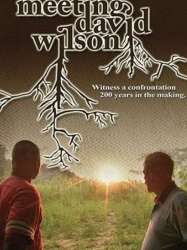
Meeting David Wilson (2008)
Genres Documentaire
Thèmes Esclavagisme, Le racisme, Documentaire sur la discrimination, Documentaire sur le droit, Documentaire historique, Documentaire sur une personnalité
Note75%





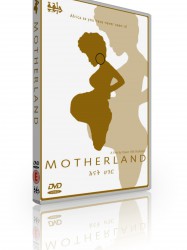
Motherland (2010)
, 1h58Réalisé par Owen 'Alik Shahadah
Origine Etats-Unis
Genres Documentaire
Thèmes Afrique post-coloniale, Esclavagisme, Le racisme, Documentaire sur la discrimination, Documentaire sur le droit, Documentaire historique, Documentaire sur une personnalité, Documentaire sur la politique, Politique
Acteurs Harry Belafonte, Abdulkadir Ahmed Said
Note82%





Motherland is an epic documentary about the African continent from Ancient Egypt to the present. It is an overview of African history and contemporary issues but with the African people at the centre of the story. It is one of the first Pan-African features to be made.
 , 1h26
, 1h26Origine Etats-Unis
Genres Documentaire, Historique
Thèmes Esclavagisme, Le racisme, Documentaire sur la discrimination, Documentaire sur le droit, Documentaire historique, Documentaire sur une personnalité
Note68%





The film focuses on the descendants of the DeWolf family, a prominent slave trading family from Rhode Island from 1769 to 1820, and the legacy of the slave trade in the North of the United States. The film follows ten family members as they retrace the triangle trade starting at Linden Place in Bristol, Rhode Island, the hometown of the DeWolfs. The family has been prominent in local businesses and banking, as academics, in the local Episcopal and other institutions, and organizing the Bristol Fourth of July Parade. The film goes with the family to Ghana, where the slaves were purchased and where they meet with current residents, and to Cuba, where James DeWolf owned three sugar and coffee plantations in the 19th century.

La Terre des âmes errantes (2000)
, 1h40Réalisé par Rithy Panh
Origine Cambodge
Genres Documentaire
Thèmes Le racisme, Documentaire sur la discrimination, Documentaire sur le droit, Documentaire sur la guerre, Documentaire historique, Documentaire sur une personnalité
Note73%





Au Cambodge en 1989 la pose d'un câble de fibre optique entre la Thaïlande et le Vietnam donne du travail à des villageois à travers un pays infesté par les mines et hanté par les âmes errantes de millions de morts sans sépultures. Rithy Panh nous ouvre les yeux sur un peuple traumatisé essayant de renaître en creusant une tranchée qui servira à mettre en œuvre une technologie dont il n'aura pas l'usage.
 Connexion
Connexion
